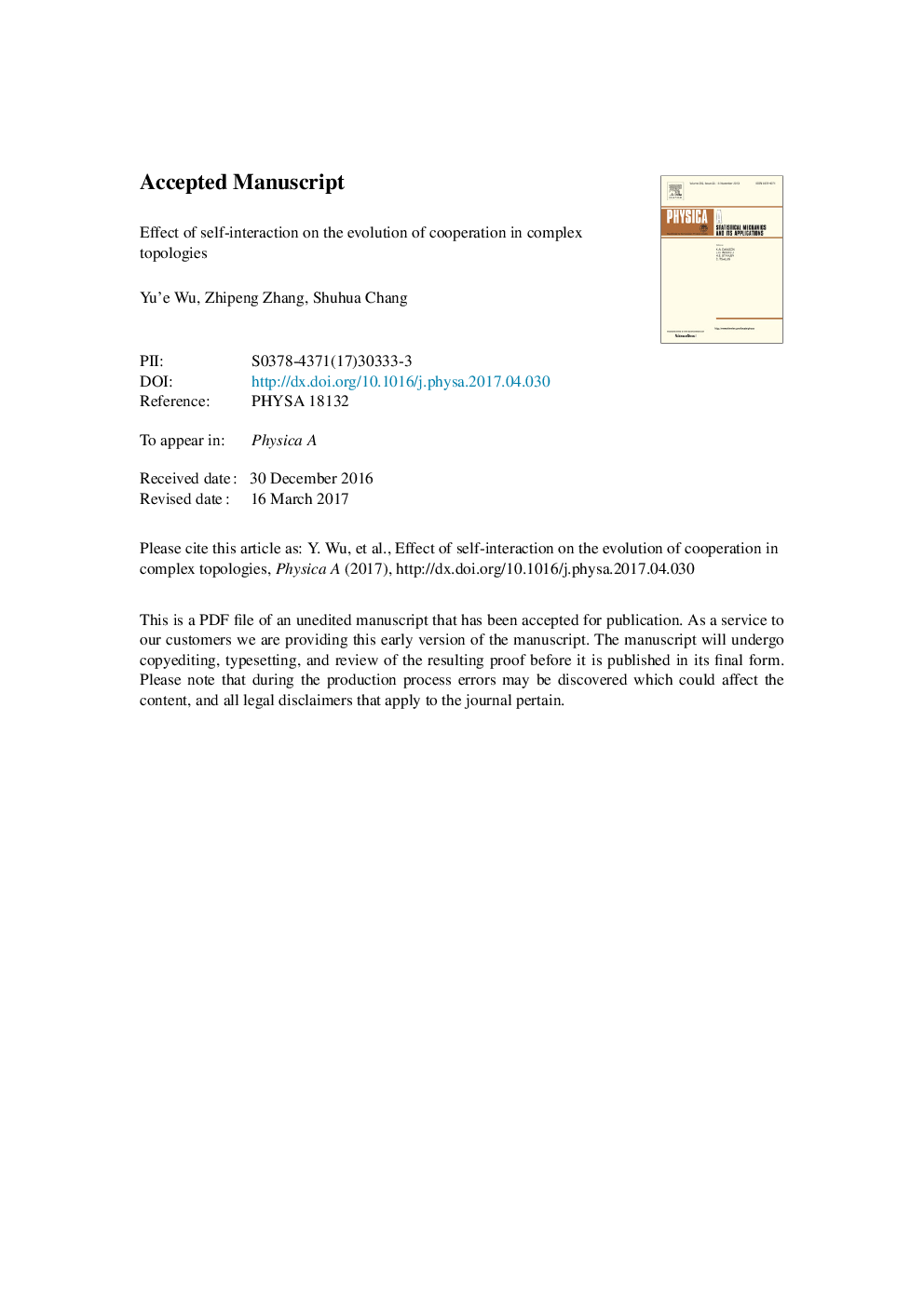| Article ID | Journal | Published Year | Pages | File Type |
|---|---|---|---|---|
| 5102798 | Physica A: Statistical Mechanics and its Applications | 2017 | 21 Pages |
Abstract
Self-interaction, as a significant mechanism explaining the evolution of cooperation, has attracted great attention both theoretically and experimentally. In this text, we consider a new self-interaction mechanism in the two typical pairwise models including the prisoner's dilemma and the snowdrift games, where the cooperative agents will gain extra bonus for their selfless behavior. We find that under the mechanism the collective cooperation is elevated to a very high level especially after adopting the finite population analogue of replicator dynamics for evolution. The robustness of the new mechanism is tested for different complex topologies for the prisoner's dilemma game. All the presented results demonstrate that the enhancement effects are independent of the structure of the applied spatial networks and the potential evolutionary games, and thus showing a high degree of universality. Our conclusions might shed light on the understanding of the evolution of cooperation in the real world.
Related Topics
Physical Sciences and Engineering
Mathematics
Mathematical Physics
Authors
Yu'e Wu, Zhipeng Zhang, Shuhua Chang,
